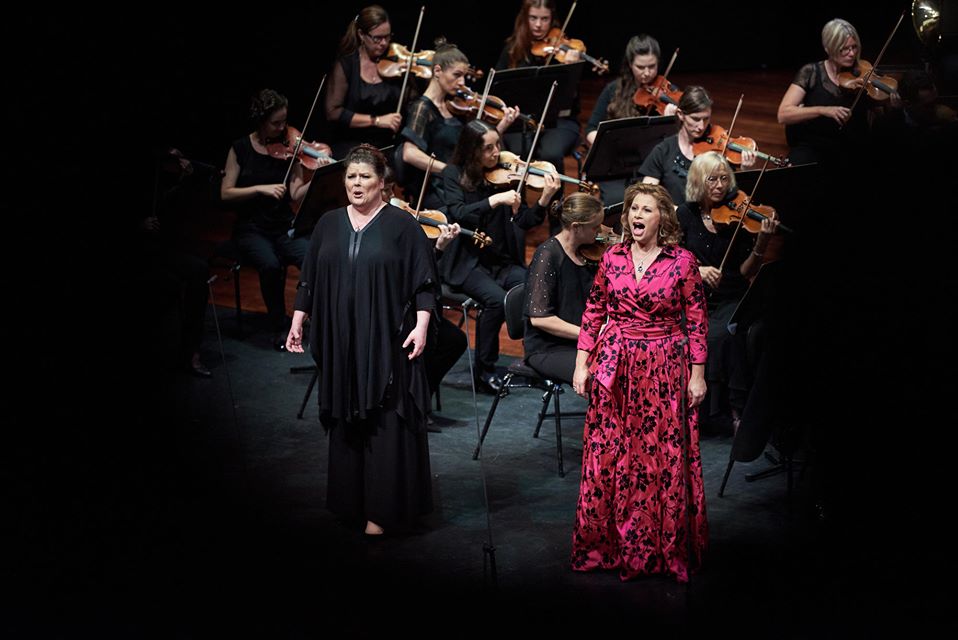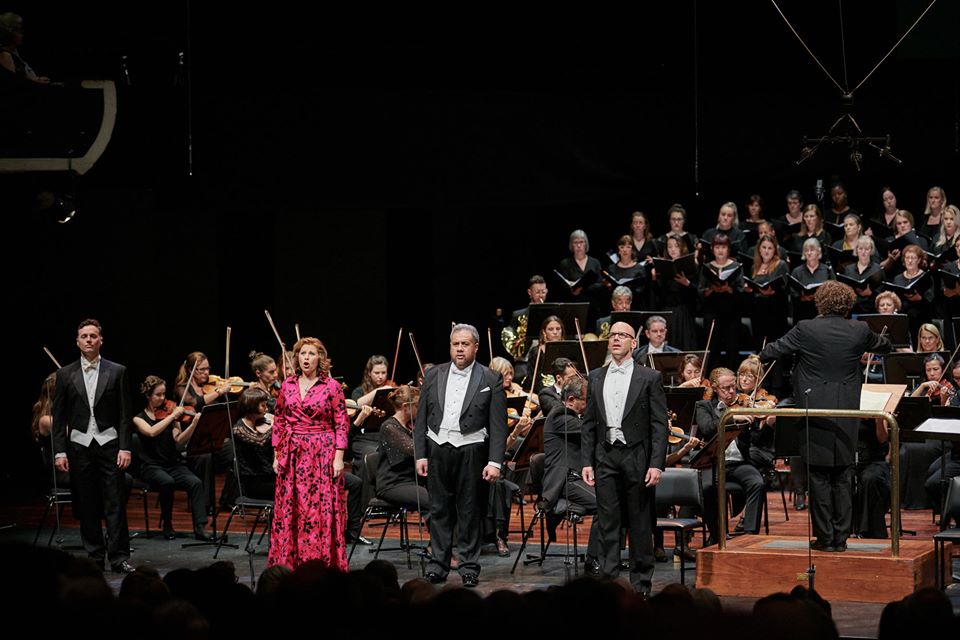In the 250th anniversary year of Beethoven, the Perth Festival’s Fidelio – a joint undertaking between the West Australian Symphony Orchestra, the WASO Chorus, and the WA Opera – was an ambitious, highly anticipated musical event. Infused with themes of political oppression and personal liberty, the composition of Beethoven’s only complete opera was itself a thing of turmoil, with the composer revising the opera several times between 1805 and 1814 and churning out four separate overtures. The Fidelio of the Perth Festival was thus participating in a time-honoured tradition of tinkering with the work, as the concert staging of the opera replaced nearly all the spoken German dialogue with narration written by novelist and poet Alison Croggon. Though there were moments that didn’t quite hit the mark, this Fidelio was a rousing and triumphantly optimistic experience.

Operas are a marathon, not a sprint, and one got the sense that WASO was saving its collective energy for the score’s ‘big’ moments. The overture, though opening with hearty gusto, was soon undercut by some shaky wind intonation and an overall orchestral sound that wasn’t as full as it could have been. However, there were some lovely moments from individual sections throughout the first act, such as the clarinet entries before the Canon Quartet and the near-flawless horn interjections throughout Leonore’s Abscheulicher aria. WASO and Fisch were equal parts sensitive and encouraging in their support of the singers onstage; the warmth of the orchestra during the Prisoner’s Chorus was especially delightful, and the energy emanating from the orchestra during the dramatic ensemble numbers was so palpable that Fisch, positioned in the centre of it all, was almost a silent soloist in his stage presence (albeit facing the wrong way.) Fortunately, the moments of major triumph and glory in the second act were more than worth waiting for, and the penultimate orchestral gestures were rousing enough to force people out of their seats and into a standing ovation.
In the absence of staging and costumes, the cast of Fidelio were entirely convincing as their respective characters. The use of limited stage space under the wonderful direction of Black Swan State Theatre’s Clare Watson wasn’t limiting in the least, and every nonverbal gesture and unsung interaction amongst the cast was so engaging and evocative that the trappings of opera production became unnecessary in bringing the story to life. Felicitas Fuchs was charming and sweet as the unsuspecting Marzelline; Andrew Goodwin was appropriately non-threatening as Jaquino; Jonathan Lemalu created a Rocco that was flawed but earnest; Adrian Tamburini’s Don Fernando was authoritative yet warm; and Warwick Fyfe’s Don Pizarro made menacing villainy look incredibly fun to create. Yet it was the couple at the centre of the drama whose performances were unforgettable. Tomislav Mužek as Florestan was sublime, his resigned fury at his predicament particularly resonant, and Christiane Libor’s strong-willed Leonore a beacon of light throughout the opera. At times, the duet pairings between certain singers resulted in vocal mismatches where one singer nearly dominated the other, but Mužek and Libor were equally matched forces that spoke to a truly equal partnership between their characters.

Alison Croggon’s narration, performed by the endlessly engaging Eryn Jean Norvill, was at times the perfect reprieve from Beethoven’s sound world. At its best, the narration functioned to probe questions and themes the opera raised, the most recurrent (and thought-provoking) of which concerned a metaphorical garden just beyond reach. At its most insightful, Croggon’s words drew parallels between the injustices referred to onstage, and those occurring in real time. However, the narration sometimes filled interpretive gaps regarding characters and events that may have best been left to audience discretion, and every so often disrupted the flow of the work and propelled the audience out of their operatic daze and back into the real world against their will. Nevertheless, Croggon’s text and Norvill’s delivery added much to the performance as a whole, and I hope that this narration is adopted for future performances of the opera. Who knows how much more resonant Fidelio will be in the years to come? Laura Biemmi











Comments
Log in to join the conversation.